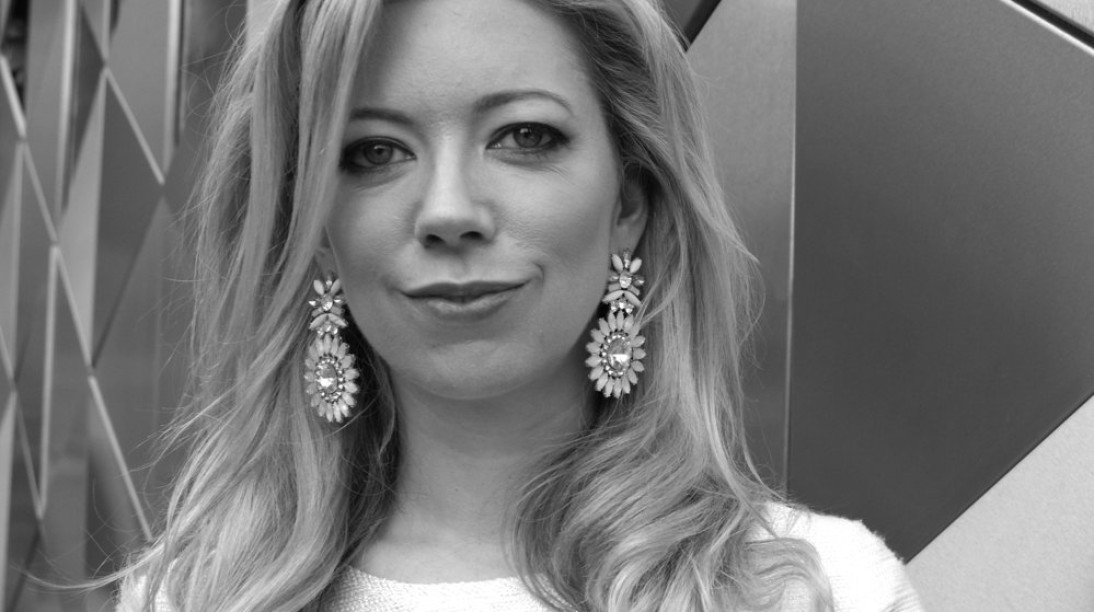I booted out the trademark trolls


The Anthology section features our best writing for clients. In this story for Cathay Pacific, shoe designer Kat Maconie tells how she discovered someone else owned her name in China
AUTHOR: Hazel Davis
EDITOR: Michael Pilgrim
Kat Maconie pays the same attention to detail in her career as she does to her shoes. But that doesn’t mean everything goes to plan.
When she decided to launch her own brand, she switched from working in product development at fashion chain Whistles to a recruitment job and shoe-design evening classes at the London College of Fashion.
She launched her shoe label Kat Maconie in 2010, marked by signature gold details, block heels and bold prints.
In 2013, Ms Maconie attended a trade fair in Shanghai with the British Footwear Association. The same year, she featured in the 30 Under 30 list published by the fashion trade magazine Drapers.
A year ago, her brand was bought at wholesale level by Chinese multi-brand e-com retailer, Phoenicia. Since signing a five-year licence agreement, Phoenicia has invested in Kat Maconie Ltd in the UK.
It now has the licence in Greater China and pays Kat Maconie Ltd a royalty on all sales generated there. It also covers the costs of overheads in Greater China.
So far so good. Ms Maconie says: “When agreeing the licence deal, I needed to prove I owned my trademark before the agreement could be signed.
“I hadn’t trademarked the brand name in China and when I tried to do so, my solicitors said it would not be possible as a trademark troll had registered my name, along with around 100 other UK-based brand names.”
It took many months of negotiation and legal bills to buy the trademark from the troll. She even had to fly him to Hong Kong for his signature to be witnessed, before paying him £18,000 to buy back the name.
Ms Maconie, who travels to China around five times a year, has eight staff in Britain and 15 working on Kat Maconie China in Guangzhou, employed by her licence partners. Her projected turnover in China for 2016 is £1m and in Britain £850,000.
Since signing the agreement, Kat Maconie China has opened concessions in Harvey Nichols Hong Kong and the brand is being sold on online shopping sites such as meici.com and shangpin.com.
There’s a Kat Maconie store on Chinese-language online marketplace TMall.com and a fully transactional Chinese-based brand site. The plan, says Ms Maconie, “is to grow online sales and open further concessions and bricks-and-mortar stores across Greater China”.
She adds: “From a retail perspective, there is potential to sell serious volume if you capture the market as it is vast.”
Though Kat Maconie shoes are luxury items, they are sold at a competitive price. “I am constantly walking a narrow tightrope producing to a high spec at a low price with small production runs and custom-made tooling and kit. Negotiating price is always a battle,” she says.
Ms Maconie has tried manufacturing in India, Spain and Brazil, but was unable to secure the consistent quality her high-end stockists demand until she went to China.
She adds: “The quality is exceptional, the prices are more competitive and the sampling and development processes offer a fast turnaround.
“They are always improving and we have access to endless options of amazing materials, trims and leathers. You can imagine anything and normally source it from an existing supplier.”
For the Chinese market, says Ms Maconie, comfort is a priority. “Shopping patterns, taste and temperature differ significantly per city. For example, in Beijing higher, dressier heels have sold better than in Chengdu.
“Your location in the mall and which mall is paramount as new malls are launching weekly and so the hip mall can quickly become second-rate.”
She adds that returns are a minefield: “Chinese customers can return product at any time to stores if they believe there to be a fault or quality issue, regardless if the item has been worn to death. Therefore, finish must be perfect if you are launching a higher-end price-point brand in this market.”
Good branding is key. “There is so much choice in China,” says Ms Maconie, “so you need to stand apart to break the market unless you are really established outside.”
FURTHER READING: Cathay Pacific case study




